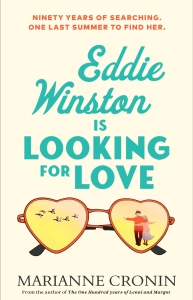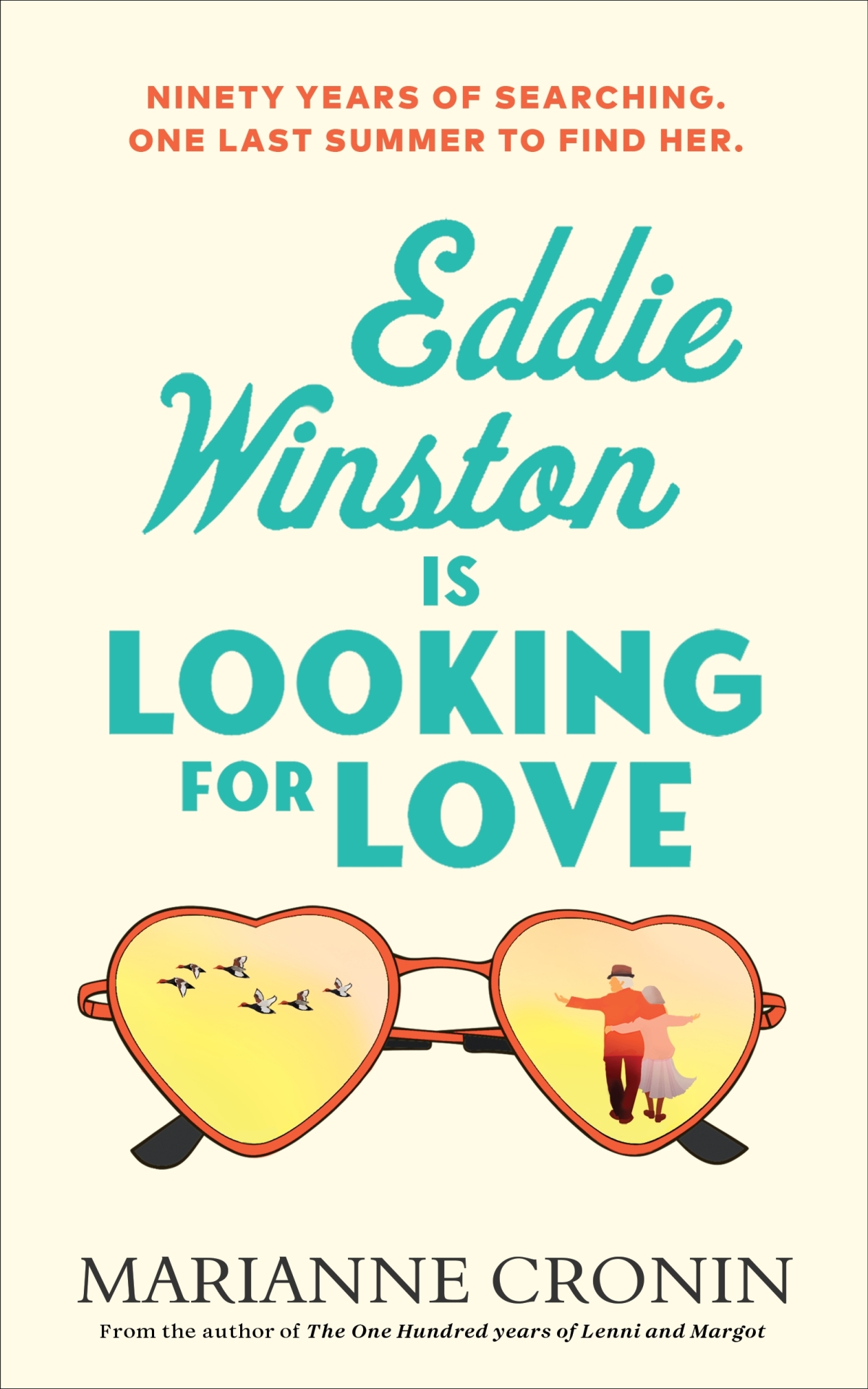
Eddie, a gentleman and romantic, volunteers at a charity shop,
preserving mementos of love. There, he meets Bella, a 24-year-old
woman grieving the loss of her soulmate. Upon discovering that
Eddie has never had his first kiss, Bella vows to help him find love,
leading them on an unexpected journey. As they embark on this
adventure, Eddie and Bella form a deep bond, revealing a
heartwarming tale of friendship and kindness. Through their efforts
to help each other, the story beautifully illustrates how love and
memories endure, and that it’s never too late to start anew.
Eddie
And so, we come to the end.
The remnants of a life don’t add up to much, really. Not once the big things – the fridge freezer, the three-piece suite, the body – are all boxed up and gone.
What remain are the little things. Odd bits and pieces. Books and records and jumpers and wellies, rusted jewellery all a-tangle. Cards and letters and Snakes and Ladders games where the dice have gone missing and the snakes are shedding a skin. Pyjamas and photographs and seashells and postcards.
Life in all its mundane glory.
The trouble with all of these objects from all of these moments in all of these lives is that they arrive all at once. Packed together in a bin bag. And there is no telling if the shoe brush (£3) or the pink enamel mirror (£7.50) are pieces of historical importance, of meaning and metaphor, or if they are just bits of old junk. Things picked on whims that eventually become the bones of a house. Maybe it is in fact the game of Mouse Trap (50p, missing its boot piece) that is the thing that this poor deceased person treasured so dearly. And yet, here in the back room, sitting on my floor cushion because the chair hurts my knee, my hands ensconced in the gardening gloves that Marjie has made me wear since the Incident with the Human Tooth (root hanging off it, covered in crusted blood, £0), I sort through the donations made by the living and the dead and I put a price tag on the souvenirs of someone else’s life.
Donations
Mr McGlew’s life arrives in a black bin bag packed by a stranger.
The young man who works for Birmingham City Council’s house-clearing team comes in every few weeks with the belongings of those who have died alone in the council’s care. The squelchy sound of a wet piece of gum being pressed between his molars comes in with him. Today, he’s wearing a high-visibility waistcoat over a filthy grey Nike sweatshirt and a pair of joggers that are hung way too low.
When I close the Mills and Boon I’ve been reading about a rascally stable hand and the wealthy middle-aged countess who loves him, the young man jumps.
‘Jesus,’ he says, putting his hand to his chest. ‘I thought you were a mannequin.’
This is absurd for three reasons. First, there are no mannequins on earth as wrinkly as me. Second, this gentleman (though that term is a stretch) has handed me a bin liner of items scooped from a council house hundreds of times in the last few years. And third, we have just the one mannequin, and she stands lonely in the window in whatever terrible outfit Marjie and I have wrestled her into, hoping it is fashionable enough to entice someone inside.
‘Here.’ He hands me the black bin bag, which has ‘Mr McGlew’ written on a piece of paper sellotaped to its side.
‘Do you happen to know the first name of Mr McGlew?’ I ask, taking out a donations form.
‘William, I think it was, bud,’ he says, checking the name written on the back of his hand in black felt tip – he knew I would want to know. That’s sweet. Then he shuffles out of the shop, pulling his black jogging bottoms up over his Calven Kine boxers and inviting me to ‘Have a good one.’
The council flat that was once the home of this Mr McGlew will already be being cleaned by the housing maintenance team. It will be back on the council’s database tomorrow and someone else will be living in it by the following evening, all evidence of Mr McGlew having been wiped and dusted and vacuumed away.
‘You want a tea, Eddie?’ Marjie calls from the back room. I can hear her skirt bustling about as she fills the kettle. She’s wearing her favourite one today, made of purple and magenta scraps of fabric that are all patchworked together. I am relatively certain she makes them herself because I’ve never seen anything quite so Marjie for sale in a shop. A few months ago, Marjie cut her hair. She used to wear it in two long silver plaits that snaked all serpentlike down her back, but then she had it chopped and cropped into a pixie cut and it suits her so well. Neat, no nonsense and usually adorned with a clip to match whichever Frankensteinian skirt she is wearing. What I love about Marjie is the paradox of her – Marjie is orderly, plain speaking, doesn’t suffer fools gladly and yet she dresses like she plays the accordion in a travelling circus.
“As I make my way to platform 10a, I feel Mr McGlew’s letters crunching away in my pocket.”
‘No, ta,’ I reply.
Marjie has decreed that we are only allowed to shout back and forth to one another when there are no customers in the shop, which, late in the afternoon on a grey Thursday, is inevitable. As I fill in the donations form, I hear the kettle click off. Mr William McGlew, posthumous donation. Rest in peace, good sir. There will be other forms being filled in about him now. A death certificate, perhaps, an application for a cremation done as cheaply as possible on behalf of the city with a funeral-less goodbye.
Marjie rattles through the bead curtain that divides the front of the shop from the staff room (£12.50 – we took the tag off and kept it because Marjie and I enjoy rattling through beads). She walks carefully, stirring the Oxo that she always drinks in her dancing-fox mug. Her Foxo.
‘What is Oxo?’ I asked Marjie when I began working in the charity shop, shortly after my retirement began to make me feel restless. ‘I mean, I recognize the smell, but what is it really? What’s it made of?’, and she replied, as though this were a completely normal thing for a human to want to drink, ‘Concentrated beef.’
‘Well, no time like the present.’ I haul Mr McGlew’s bin bag off the counter and rattle back through the wooden beads.
‘You’re a star,’ Marjie calls, knowing that it always makes me sad when the city council is in charge of discarding someone’s final earthly possessions. Usually, a crying relative will drop them off, or at least an old friend, even a neighbour. When the council does it, it means the person who died was completely alone in the world.
Mr McGlew has very little that will be of use to us. Which makes me feel even sadder for him. What makes it into the ‘sell’ pile is a wooden carriage clock, a vintage radio and a cross stitch of a cobbled street.
And, for the recycling bin, is the rest of his life. Moth-eaten jumpers, a tea-stained Ordnance Survey map, a butter pot with buttons inside and a broken badminton racquet.
And that is it for poor Mr McGlew: everything he owned is now dispersed to be sold or burned or recycled. All, that is, except for five sun-yellowed envelopes addressed to Elsie Woods, 33 Church Lane, West Dean, Chichester, PO19 3QX. I place these precious epistles into the Eddie Pile.
I hear Marjie clip-clopping across the shop floor in her low-heeled shoes like a well-dressed horse and I quickly stuff the contents of the Eddie Pile into my blazer pocket.
‘Home time!’ she sings.
‘Mm-hm,’ I reply, trying not to move, lest she hear the tell-tale crunch of someone else’s words in my chest.
I pop on my hat and check the train times on my phone. There’s a train in eight minutes and another in thirty-eight, so I decide not to be too cruel to my knee and walk slowly down the hill towards New Street Station.
I love the bustle of New Street. All the busy people in their smart clothing with their laptops and lunch crumbs in heavy backpacks. I do get bumped into a lot, particularly by men in suits who have conducted an assessment and found themselves to be the most important creatures on the crust of the earth, but I love it nonetheless.
As I make my way to platform 10a, I feel Mr McGlew’s letters crunching away in my pocket. Bet you can’t wait to read us, they whisper with every crinkle.
And they are right.
Eddie Winston is Looking for Love by Marianne Cronin is out now.
YOU MAY ALSO ENJOY
Interview with Author Marianne Cronin









